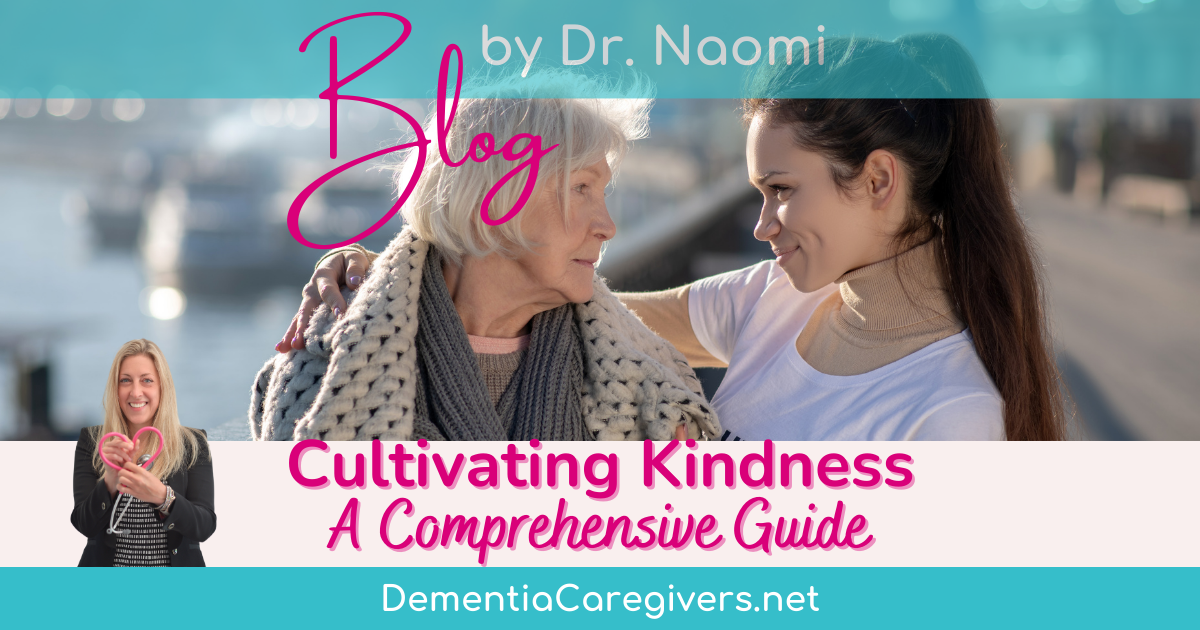
Navigating the landscape of dementia caregiving is fraught with emotional challenges and technical complexities. As an MD, and former caregiver, I believe that integrating kindness into your caregiving approach can make a world of difference. This detailed guide explores vital strategies for fostering kindness in dementia caregiving. By the end, you'll be equipped to improve not only your caregiving techniques but also enhance the life quality of those under your care.
Why Kindness is Crucial in Dementia Caregiving
Creating a Safe Environment: For people with dementia, the world can be a confusing place. Your kindness can act as an emotional anchor for them.
Enhancing Cognitive Function: Kindness has been shown to slow cognitive decline, making it a potent tool in your dementia care arsenal.

Strategies to Cultivate Kindness in Dementia Caregiving
Empathetic Communication
Dementia often impacts speech and understanding. Therefore, communicating clearly, patiently, and empathetically becomes crucial. Being empathetic means putting yourself in the other person’s shoes. This can be particularly effective in understanding their needs and fears, thereby tailoring your caregiving approach to meet those specific needs. Employ non-verbal cues and maintain eye contact to create a more supportive atmosphere.
Active Listening
Active listening goes beyond just hearing. It involves showing genuine interest in what the patient is saying, asking follow-up questions, and providing relevant responses. This deepens the relationship and ensures the patient feels valued.
Compassionate Presence
Being there both physically and emotionally can reduce agitation and anxiety commonly seen in dementia patients. Your reassuring presence can provide immense comfort.
Scheduled and Spontaneous Affection
Whether it’s a planned activity that the patient enjoys or a spontaneous hug, affection can lift spirits and provide comfort. These small tokens of love make the caregiving journey less arduous for both parties.
Adaptive Flexibility
Dementia patients may have mood swings or changing preferences. Adapt your caregiving strategy flexibly to match their current needs. This not only shows kindness but also helps in effective caregiving.
Mindfulness in Dementia Care
Being mindful ensures that you are present in the moment. Practising mindfulness can help you react more calmly and kindly in stressful situations, which is essential when dealing with dementia symptoms.
Holistic Kindness: Body, Mind, and Soul
Diet and Physical Activity
Good nutrition and regular physical activity have a profound effect on a patient’s mood and overall well-being. Encourage activities that both you and the person with dementia find enjoyable, making it a form of physical and emotional nourishment. When you care for yourself, you're better equipped to care for others.
Emotional Resilience
Juggling numerous responsibilities can lead to mental fatigue. Managing your emotional health is key to being (and staying!) a kind caregiver. Utilise stress-management techniques and support systems and set boundaries to ensure you are emotionally equipped to provide care.
Spiritual Connection
Connecting on a spiritual level can often help in soothing the anxieties that come with dementia. It can come in various forms, whether it's meditation, prayer, music, or simply connecting with nature. It enriches the soul and brings peace, making caregiving a more fulfilling endeavour.

Adapting Kindness to Different Dementia Stages
Early Stages
In the early stages, focus on enabling the patient to remain independent while ensuring their safety.
Moderate Stages
As the disease progresses, adapt your kindness strategies to involve more structured activities and close monitoring.
Advanced Stages
In advanced stages, the focus shifts to providing a comfortable, soothing environment while maintaining dignity in care.
Conclusion
Cultivating kindness in dementia caregiving is an actionable way to make a significant positive impact. By implementing these strategies, we aim to enrich the caregiving journey, making it fulfilling for you and beneficial for those you care for.
Want to keep all the joyful activities information at your fingertips? Download it here for FREE! Empower your caregiving journey with this PDF and embrace the beauty of joyful activities.
Love what you read here? Subscribe for updates! Add me to the list!






























0 Comments